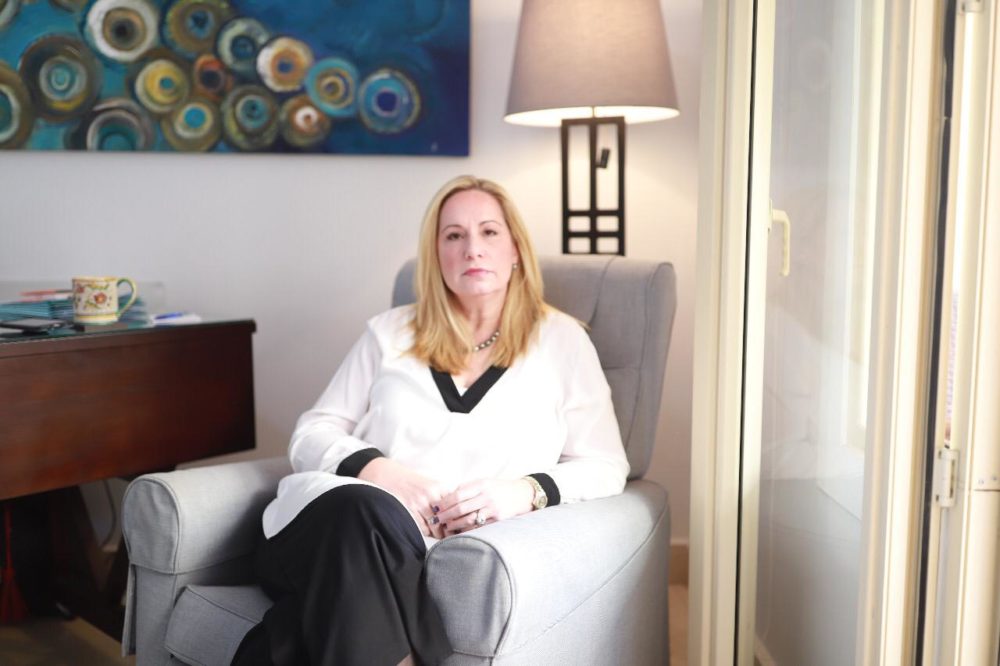Dr. Anne Justus is a Clinical Psychologist based in Cairo. She was an Associate Professor of Practice at the American University in Cairo’s Department of Psychology and is now the Director of The Maadi Psychology Center in New Cairo. She’s an American who fell in love with Egypt and – contrary to what you might assume – most of her clients are Egyptians, not expats.
“When I started out I thought most of my clients would be expats, but I’d say that – to my surprise – 70 to 75 percent of them are Egyptians,” stated Justus. “I guess they think: she’s not Egyptian, she does not know my mom,” she joked. “And I follow the American standards of confidentiality. They’re hyper strict and help people feel more at ease,” she added.
Amongst Justus’ clients are numerous working professionals and companies who consult with her on issues related to team building, enhancing communication, overcoming trauma in the workplace, steering clear of burnout and striking a decent work-life balance.
I met with Dr. Justus and we talked about how toxic masculinity manifests itself in the workplace. We also dug in to how therapy can help someone achieve a better work-life balance.

Via 925
Toxic Masculinity in the Workplace
“Sexual harassment is a big deal. It’s a big deal around the world and here in Egypt,” said Justus when we started talking about manifestations of toxic masculinity in the workplace.
Everyone of us is highly likely to have either witnessed a story where a person was sexually harassed (and couldn’t or didn’t want to report it) or heard about one. And this is arguably perpetuated by the power dynamic that is the result of toxic masculinity.
“The number of people who come to me who have been sexually harassed at work – even those who are super high up in the corporate hierarchy – is astounding! Usually they are women, but some of them are also men,” she elaborated. “And when this happens, a domino effect of repercussions ensues. If you and I work under a female boss who has been harassed, it will most probably affect her management style and this will in turn impact us, and so on.”
And according to Justus’ view, this should be worrying even if from a business perspective. If you truly care about your company’s profits, you would do your best to help your employees maintain a high morale. And sexual harassment can obviously destroy it. “It makes people not want to work. They might still go to work but their performance would significantly drop because once they get there, they would want to get the hell out.”
Ambition and Maintaining A Healthy Work-Life Balance
I’ve met and interviewed extremely ambitious CEOs and entrepreneurs who proudly claim to work all day and all night. Being in a company full of young people who are vibrant, willing to stretch (their working hours) and never sleep, is not a sign of a bad work-life balance anymore, especially in Egypt’s startup atmosphere. It’s a sign of ownership and dedication.
But when does dedication and commitment to your work exceed healthy limitations? Take business magnate and CEO of Egyptian Steel, Ahmed Abou Hashima, as an example. He recently, in an interview with us, expressed that his work-life balance is heavily tilted towards work because that’s what it takes to reach the success he’s currently at. He explained that “when you’re doing business in developing countries, you’re doing it in a myriad of economic and organizational issues that you have to adapt to. And adapting, takes a lot of work.”
I presented Justus with Abou Hashima’s case and the stories of other entrepreneurs and accomplished people we’ve encountered. I asked her, how can you help someone with a specific set of assumptions and beliefs about life and work to strike a decent work-life balance? What if all they want to do is work?
”The goal of therapy in general is to help people figure out what they want or need to be the best version of themselves. And this applies to work-life balance,” she said, acknowledging that the ‘right’ work-life balance cannot be the same for every person.

Via 925
“The usual and general advice is: give your work, your life outside it, and your sleep a third of your day. But that’s just not practical for many people,” she argued. “What many of my clients who are CEOs and work for really long hours do, is work strenuously for weeks or even months, then they would take long breaks to de-stress and spend quality time with their families.”




























